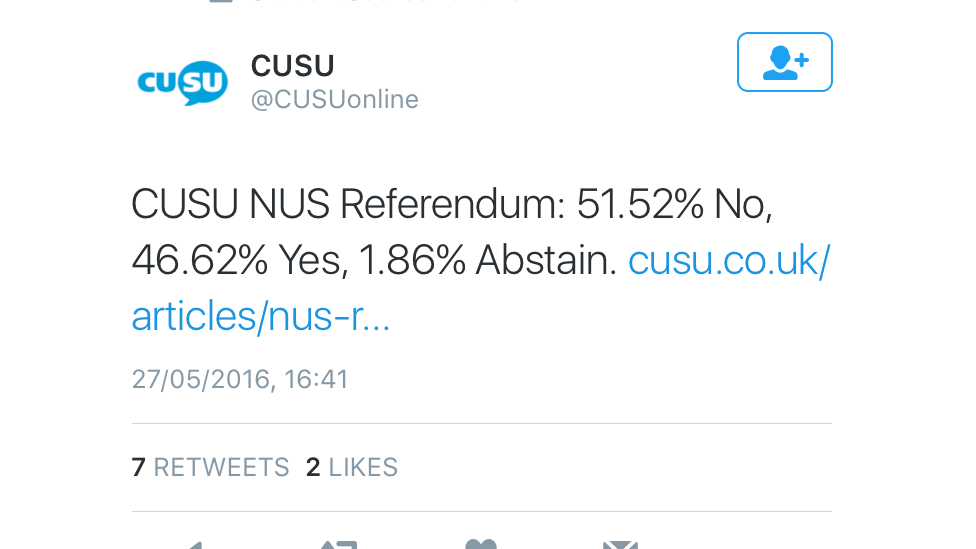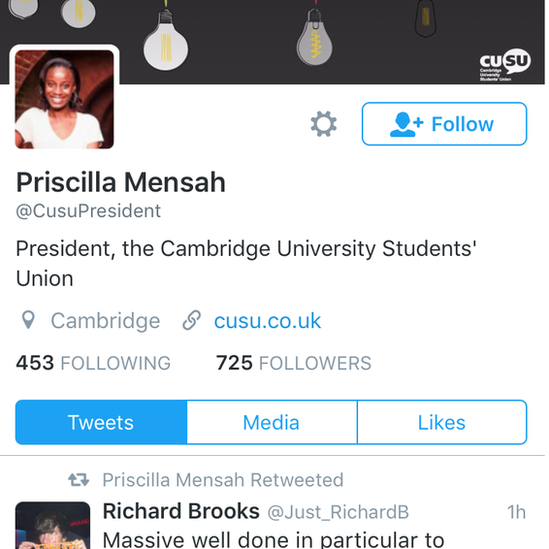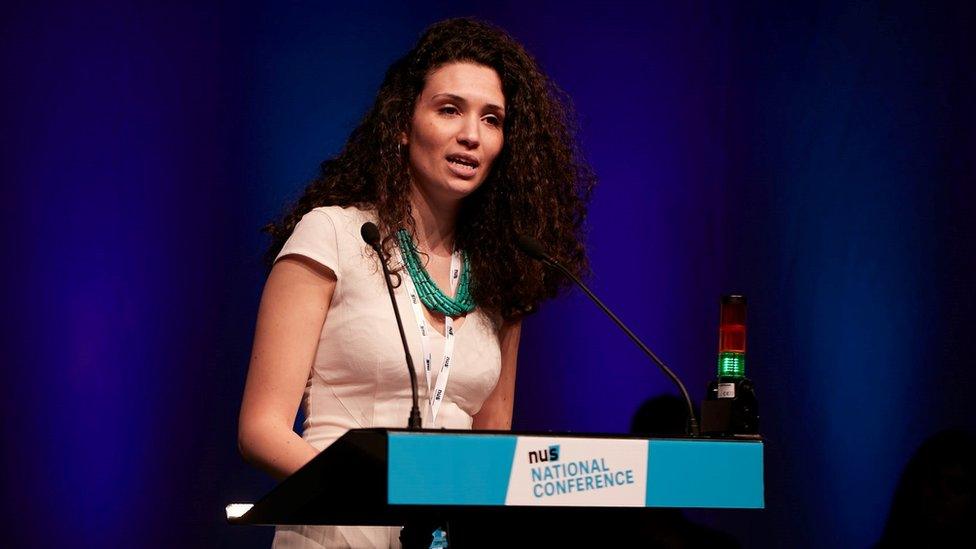Cambridge University to remain with NUS
- Published

Cambridge students voted to remain with the NUS
Cambridge University will remain affiliated to the National Union of Students after a referendum of students rejected a motion to leave.
Cambridge is one of several universities to hold disaffiliation votes after Malia Bouattia, who has been accused of anti-semitism, was elected as NUS president.
Just over half of the 6,178 students who voted rejected the motion.
A vote at Oxford University is scheduled for next week.
NUS vice-president Richard Brooks said he was delighted at the result "which comes at a crucial time for students".
Mr Brooks said the union was planning changes to its democratic model.
"It means that Cambridge students will continue to be part of our national voice."
Cambridge University Student Union President Priscilla Mensah, who campaigned against disaffiliation, said she was "pleased that Cambridge students will continue to have a voice in shaping and changing NUS for the better".
The Yes to Disaffiliation Campaign described themselves as disappointed.
In votes earlier this month, student unions at Newcastle, Lincoln and Hull voted to disaffiliate, while Exeter, Warwick and Surrey opted to remain.
Disaffiliation votes at Loughborough and Worcester universities were ruled inquorate as too few students took part.
Cambridge results
6,178 students voted - a turnout of 28.76%
51.5% or 3,183 students voted against disaffiliation
46.6% or 2,880 were for disaffiliation
1.8% or 115 abstained
Ms Mensah said the high levels of engagement in the referendum meant the vote was "definitive".
She said it would provide the student union team with a "strong mandate to take forward the clear and legitimate concerns that Cambridge students have raised during this referendum".
"I have been explicit as a campaigner that NUS is far from perfect," she added.
She said they would collaborate with "students' unions across the country to ensure NUS becomes the inclusive and effective organisation students deserve".

Cambridge Student Union President Priscilla Mensah was a leading campaigner to remain with the NUS
Adam Crafton and Jack May, who co-founded the Yes to Disaffiliation campaign, said they were proud of having "awoken the Cambridge student community to the challenges facing Jewish students on British campuses in 2016".
They congratulated the Remain campaign but said their concerns persisted.
"It is vital that the NUS do not see this vote as a legitimisation of the direction their organisation is taking but instead see it as a mandate from a very prestigious university to be allowed one last chance to secure the reforms that Jewish students deserve."

New NUS president Malia Bouattia has been accused of anti-semitism
Elected last month, Ms Bouattia, 28, is the first black Muslim to hold the post of NUS president.
She arrived in the UK aged seven and in her election speech,, external she said her family had been forced to flee their home in Algeria after "terrorists rained gunfire" on her school.
She attended the University of Birmingham from 2006 to 2014 and has held the post of NUS Black Students Officer since 2014.
Campaigns
Ms Bouattia's campaigns have included Why Is My Curriculum White? and she has opposed the government's Prevent counter-extremism strategy.
In 2011, she co-wrote a blog for a Friends of Palestine campaign group saying that "the University of Birmingham is something of a Zionist outpost in British Higher Education".

The Yes to Disaffiliation campaign say they are proud to have highlighted the problems faced by Jewish students on UK campuses
In 2014 she made comments about what she said were "mainstream Zionist-led media outlets".
She has since said she is "extremely uncomfortable with insinuations of anti-semitism", adding: "For me to take issue with Zionist politics is not me taking issue with being Jewish".
She has also been accused of not supporting a motion condemning so-called Islamic State.
But the NUS says this was because she disputed the wording of the motion and not the principle.
Other student unions planning disaffiliation votes include York and Bath Spa Universities.
- Published13 May 2016

- Published22 April 2016
